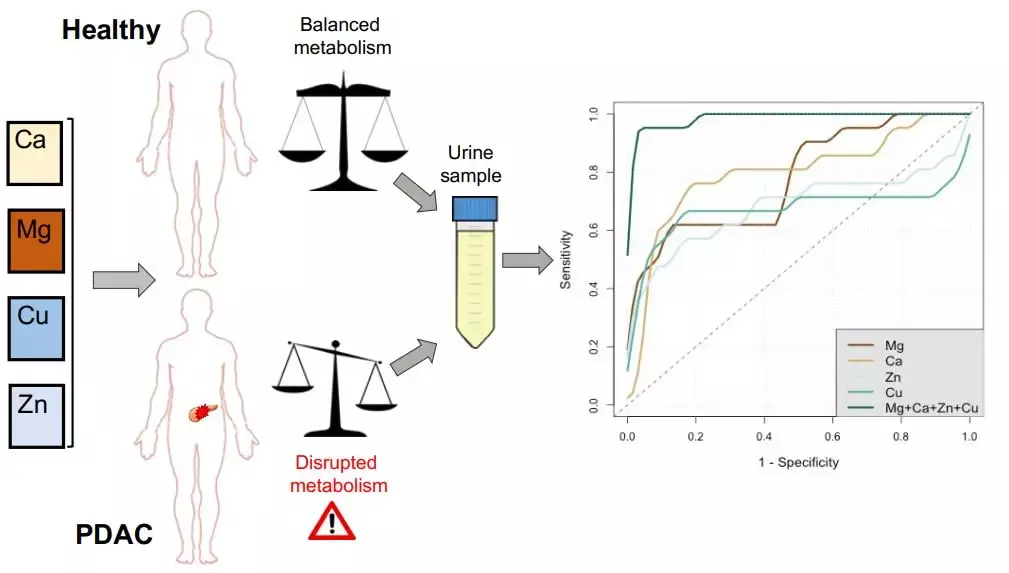- Home
- Medical news & Guidelines
- Anesthesiology
- Cardiology and CTVS
- Critical Care
- Dentistry
- Dermatology
- Diabetes and Endocrinology
- ENT
- Gastroenterology
- Medicine
- Nephrology
- Neurology
- Obstretics-Gynaecology
- Oncology
- Ophthalmology
- Orthopaedics
- Pediatrics-Neonatology
- Psychiatry
- Pulmonology
- Radiology
- Surgery
- Urology
- Laboratory Medicine
- Diet
- Nursing
- Paramedical
- Physiotherapy
- Health news
- Fact Check
- Bone Health Fact Check
- Brain Health Fact Check
- Cancer Related Fact Check
- Child Care Fact Check
- Dental and oral health fact check
- Diabetes and metabolic health fact check
- Diet and Nutrition Fact Check
- Eye and ENT Care Fact Check
- Fitness fact check
- Gut health fact check
- Heart health fact check
- Kidney health fact check
- Medical education fact check
- Men's health fact check
- Respiratory fact check
- Skin and hair care fact check
- Vaccine and Immunization fact check
- Women's health fact check
- AYUSH
- State News
- Andaman and Nicobar Islands
- Andhra Pradesh
- Arunachal Pradesh
- Assam
- Bihar
- Chandigarh
- Chattisgarh
- Dadra and Nagar Haveli
- Daman and Diu
- Delhi
- Goa
- Gujarat
- Haryana
- Himachal Pradesh
- Jammu & Kashmir
- Jharkhand
- Karnataka
- Kerala
- Ladakh
- Lakshadweep
- Madhya Pradesh
- Maharashtra
- Manipur
- Meghalaya
- Mizoram
- Nagaland
- Odisha
- Puducherry
- Punjab
- Rajasthan
- Sikkim
- Tamil Nadu
- Telangana
- Tripura
- Uttar Pradesh
- Uttrakhand
- West Bengal
- Medical Education
- Industry
Metal estimation in urine may help diagnose pancreatic cancer
 Courtesy Columbia university
Courtesy Columbia universityResearchers at Oxford, in collaboration with Columbia University and Barts Cancer Institute at Queen Mary University of London have found that the signature of metal ions present in urine samples is an accurate indicator of pancreatic ductal adenocarcinoma (PDAC), one of the deadliest types of cancer.
The discovery could signal the possibility of a new and completely non-invasive test for pancreatic cancer.They study has been published in Metallomics.
No tests for early detection are currently available and as symptoms are usually non-specific, PDAC is normally diagnosed at a late stage when it is already locally advanced or has spread to other parts of the body. Any improvement in tests for early detection would therefore represent a breakthrough.
Pancreatic cancer leads to 6% of cancer deaths worldwide each year because it has an extremely poor prognosis; the mortality rate is around 85%Pancreatic ductal adenocarcinoma (PDAC) is the commonest form, responsible for 90% of pancreatic cancers.
The study, published in Metallomics, took as its starting point the fact that cancer development leads to changes in biochemical reactions within the body. These imbalances, if measurable, can be powerful tools for cancer detection. The research team discovered that PDAC patients had significantly lower levels of urinary calcium and magnesium and increased levels of copper and zinc, when compared to healthy controls. A combined analysis of these essential metals was shown to be an accurate indicator of biochemical changes related to PDAC. The team also identified that the urine of PDAC patients has higher levels of a particular isotope of zinc ('light zinc') compared to healthy controls.
Lead author Kathrin Schilling from the Department of Earth Sciences said: "Our results demonstrate for the first time a remarkable difference in essential metal and zinc isotope composition in urine between PDAC patients and healthy people."
The findings indicate that urine metallomics – the analysis of the types of metal present in the body – is a promising approach for the discovery of biomarkers for detection of patients with PDAC non-invasively, using urine samples.
"As urine samples can be taken time and time again in a non-invasive way, we can start to talk about an effective method to screen and monitor high-risk groups for pancreatic cancer," Schilling said. "The next steps are to see whether our observations in the pilot study can be expanded to clinical scale studies.
"I am excited to see that highly sensitive isotopic methods originating in the Department of Earth Sciences provide a new opportunity to probe changes in zinc metabolism caused by pancreatic cancer. Our results show that developing new science crossing interdisciplinary boundaries can address really important needs in medicine."
Senior author on the study, Prof Tatjana Crnogorac-Jurcevic from Queen Mary University London, said: "We are very excited about our findings, and hope that we will be able to continue this work and further validate obtained results."
The next step will be to study the levels of metal elements in a larger number of urine samples as well as in pre-diagnostic urine samples, to see if changes in their levels can be detected before the symptoms of cancer appear. If the results are still promising, the metal biomarkers will then be tested in prospectively collected samples, in a real clinical scenario.
Dr Kamal Kant Kohli-MBBS, DTCD- a chest specialist with more than 30 years of practice and a flair for writing clinical articles, Dr Kamal Kant Kohli joined Medical Dialogues as a Chief Editor of Medical News. Besides writing articles, as an editor, he proofreads and verifies all the medical content published on Medical Dialogues including those coming from journals, studies,medical conferences,guidelines etc. Email: drkohli@medicaldialogues.in. Contact no. 011-43720751


